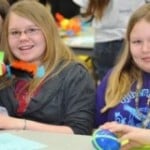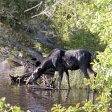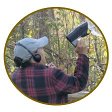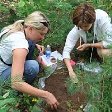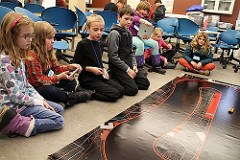
The next session of after school sciences classes for elementary school children begins Thursday, March 17.
The sessions are from 4 to 5:30 p.m. the next six Thursdays at Michigan Tech’s Great Lakes Research Center. The hands-on science explorations are taught by Michigan Tech science and engineering students and staff. The sessions are as follows:
- Spring Nature Explorations, Grades 1 and 2—As the snow melts and the days lengthen, it’s time to investigate birds and spring migration, growing plants, frog life cycles and incredible insects that may bite us, but provide dinner for so many other organisms.
- Physics of Motion, Grades 3 through 5—Explore motion in our world through investigations involving the principles of physics. Students will construct rockets, roller coaters, aqueducts and catapults to discover the relationship between energy and motion through engaging, hands-ons activities.
The cost is $75 per student. You can pay by credit card by calling the Michigan Tech Cashier at 7-2247 (Space is not reserved until your payment is received).
Register by tomorrow (March 16) online, or on the website of the Western UP Center for Science, Mathematics and Environmental Education.
Anyone with questions can email Joan Chadde or call 7-3341.
